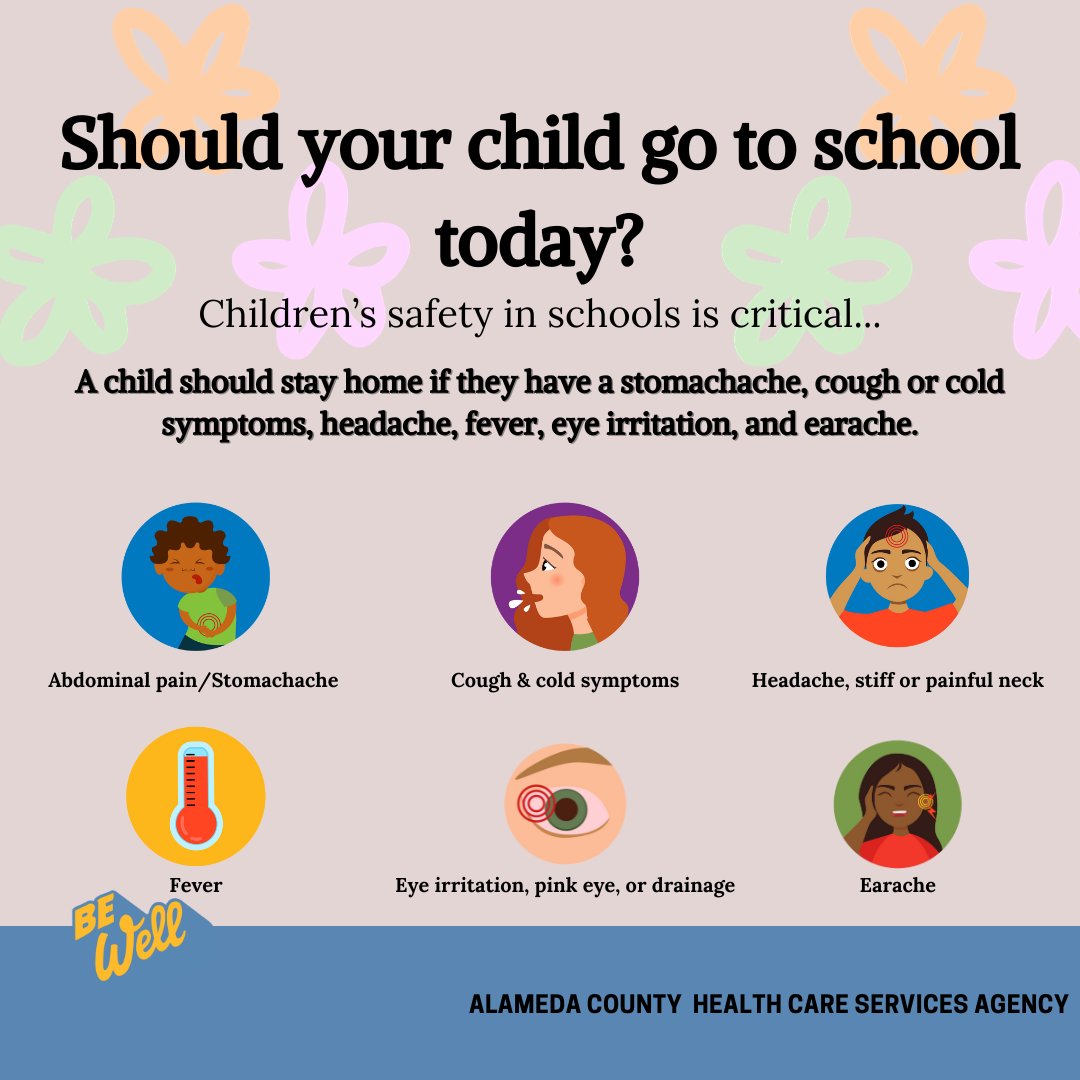Attending school with a mild cold is generally acceptable; however, if symptoms are severe or include a fever, it’s best to stay home. Make this decision with your overall health and the well-being of classmates in mind.
Deciding whether to go to school with a cold requires considering both personal comfort and the responsibility to others. Cold symptoms can vary widely, from a mere runny nose to a debilitating cough and body aches. Milder colds might not hinder your ability to participate in school activities, and good hygiene can help prevent the spread of germs.
Yet, a more significant illness demands rest and recovery away from the classroom to avoid infecting peers. Schools often have policies regarding illness and attendance, suggesting that students with fevers or contagious conditions take the necessary time off. Parents and guardians must gauge the intensity of a cold, considering advice from healthcare providers and school regulations to make an informed decision. Notably, prioritizing health will always benefit both the student and the school community in the long run.
Deciphering Cold Symptoms
Common cold signs are easy to spot. You may have a runny or stuffy nose. Sneezing is another clear sign. A mild cough can happen too. Your throat might feel sore or scratchy. These symptoms come on slowly. This matters for deciding school attendance.
Flu symptoms are more severe. They include a high fever, headaches, and muscle aches. You feel these symptoms quickly. This difference helps in telling a cold from the flu. It is important for knowing when to stay home.

Credit: twitter.com
Assessing Severity And Contagion
Evaluating the severity of a cold is crucial before attending school. Mild symptoms, such as a slight cough or runny nose, may not require a stay-at-home day. Yet, fever, intense coughing, and general malaise are signs to rest at home. Consult a healthcare professional for guidance.
Understanding the risk of transmission helps to prevent spreading the cold. Colds are highly contagious, especially in close-contact environments like schools. Practice good hygiene by washing hands and using tissues when sneezing. Remember, staying home when very sick is best to protect friends and schoolmates.
Guidelines For School Attendance
School policies often vary on students attending with a cold. Most schools advise against it to prevent spreading germs. Parents are usually urged to monitor symptoms.
Mild colds may not always require absence. Guidelines suggest that no fever for 24 hours is a sign it’s okay to return. Sniffles without fever or severe discomfort often mean a student can attend.
Recommendations stress on hand hygiene and cough etiquette. Students should know when to wash hands and to cover coughs. Rest and fluids are highlighted for faster recovery.

Credit: www.health.harvard.edu
The Role Of Rest And Recovery
Rest is crucial for the body to heal when fighting a cold. It lets your body focus energy on fighting the infection. Without enough rest, recovery can take longer.
Balancing school and health can be tough. Listen to your body and talk to your teachers about any concerns. They may give extensions or homework adjustments.
- Sleep more to help your body heal.
- Stay hydrated and eat healthy foods.
- Limit activities outside of school to rest more.
Taking care of yourself should always come first. School is important, but so is your health. Stay home if you feel very sick. This way, you protect your friends from getting sick too.
Preventive Measures And Hygiene
Maintaining good hygiene is key to preventing the spread of germs. Regular hand washing is a must. Use soap and warm water. Scrub for at least 20 seconds. Always wash hands before eating and after sneezing. Sneeze or cough into your elbow, not hands. This helps to keep germs off your fingers. Avoid touching your face, especially eyes, nose, and mouth.
Stay home if you feel sick. This protects friends from getting sick too. Keep your surroundings clean. Wipe down commonly used surfaces often. Use disinfectant wipes or sprays. These surfaces include door handles, light switches, and phones. Sharing isn’t caring when it comes to utensils and cups. Use your own pencils and books too.
When To Seek Medical Advice
Staying healthy is key for learning. Common cold symptoms can be a tricky decision for school. Sore throat, sneezing, and a runny nose might seem mild. Yet, some signs suggest a doctor’s visit is needed.
If you have a high fever over 100.4°F, it’s time for a check-up. Difficulty breathing or shortness of breath also means doctor time. Severe headaches, chest pain, and extreme tiredness are not just regular cold signs. Vomiting, lasting more than 24 hours, is a clear signal to seek help. Lingering symptoms that don’t improve should be assessed by a professional. Persistent coughing for more than a week deserves attention too.

Credit: www.healthline.com
Frequently Asked Questions On Are You Supposed To Go To School With A Cold
Should I Skip School If I Have A Cold?
If you have a mild cold, attend school but practice good hygiene. For severe symptoms, stay home to rest and prevent spreading the illness. Always consult with a guardian or healthcare provider for personal advice.
Should I Stay Home If I Have A Cold?
Yes, stay home if you have a cold to rest and avoid spreading germs to others. Practice good hygiene and consult a healthcare provider if symptoms persist or worsen.
Am I Sick Enough To Stay Home From School?
Stay home from school if you exhibit fever, relentless cough, vomiting, or diarrhea. Seek a healthcare provider’s opinion for persistent symptoms or COVID-19 suspicion. Avoid infecting others and rest until fully recovered.
How Many Days Is A Cold Contagious For?
A cold is typically contagious for 1-2 days before symptoms start and can remain so for about 5-7 days after becoming sick.
Conclusion
It’s clear that health takes priority over attendance. Weigh the severity of your symptoms before deciding on school. Rest and recovery are essential, and your classmates’ well-being matters too. Seek medical advice, and stay informed on your school’s policies regarding illness.
Remember, a day at home might prevent a week out later.

